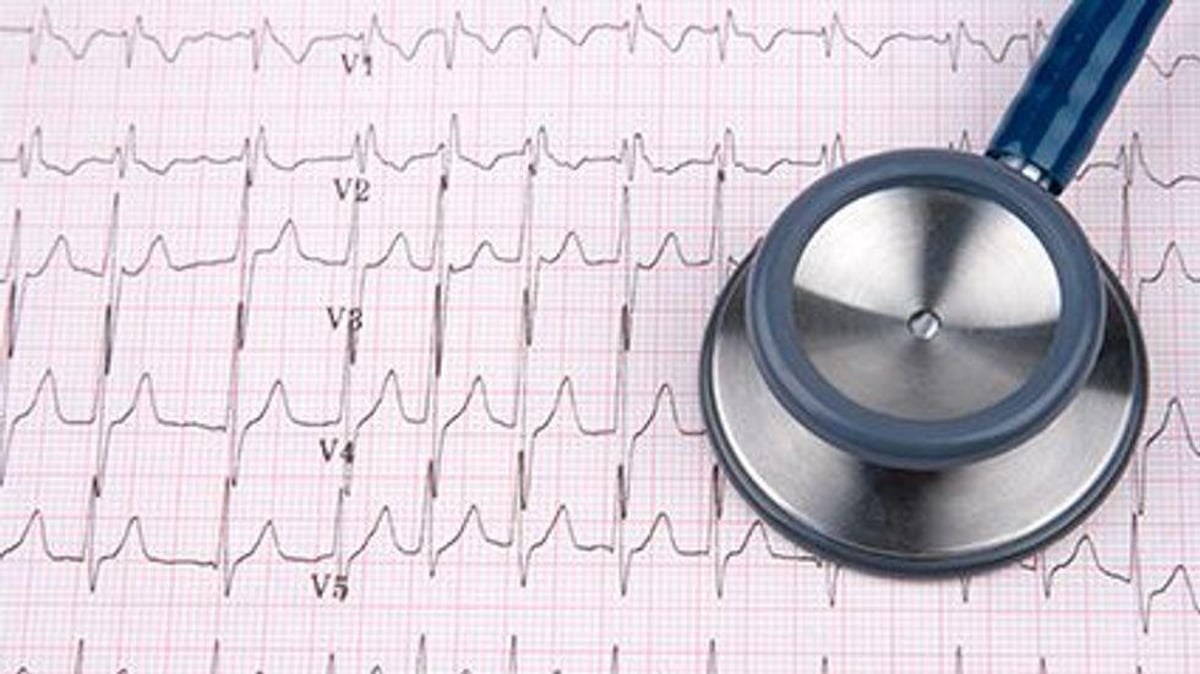No Evidence of Malignant, Sustained Arrhythmias Seen After COVID-19

TUESDAY, Jan. 25, 2022 (HealthDay News) -- For outpatients after a positive COVID-19 diagnosis, there is no evidence of malignant or sustained arrhythmias, according to a study published online Jan. 20 in Open Heart.
Thomas A. Dewland, M.D., from the University of California San Francisco, and colleagues examined the prevalence of arrhythmia among outpatients after a COVID-19 diagnosis. Fifty-one individuals underwent 14-day ambulatory electrocardiographic monitoring at a median of 75 days after a positive COVID-19 test.
The researchers found that none of the participants exhibited atrial fibrillation, atrial flutter, sustained supraventricular tachycardia, sustained ventricular tachycardia, or infranodal atrioventricular block. Ninety-six percent of participants had an ectopic burden of <1 percent; one had a supraventricular ectopic burden of 2.8 percent; and one had a ventricular ectopic burden of 15.4 percent. Ninety-two percent of participants triggered their monitor for palpitation symptoms; of these triggers, 78 percent were for sinus rhythm or sinus tachycardia.
"Although these findings cannot exclude the possibility of serious arrhythmia in selected individuals, they do not support a strong or widespread proarrhythmic effect of COVID-19 infection after resolution of acute illness," the authors write.
One author disclosed financial ties to Element Science and iRhythm Technologies.
Related Posts
Keeping Blood Pressure in Check Could Cut Your Odds for Dementia
WEDNESDAY, Oct. 26, 2022 (HealthDay News) -- Controlling high blood pressure in...
Screening School Kids for Depression Boosts Diagnoses, Outcomes
TUESDAY, Nov. 9, 2021 (HealthDay News) -- Schools could provide solutions for...
Will Medical Marijuana, CBD Ease Chronic Pain?
TUESDAY, June 7, 2022 (HealthDay News) -- Use of medical marijuana has surged...
